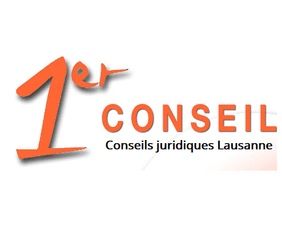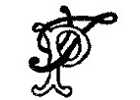Please use Microsoft Edge, Google Chrome or [Firefox](https://getfirefox. com/).

Fragnière Philippe (Lausanne)
Do you own or work for Fragnière Philippe?
About Us
What is hypnosis?
Perhaps you've seen hypnotists on TV putting their clients to sleep with the help of a pendulum. Or perhaps you've seen hypnosis shows in which people were made to do anything and everything in a second state.
These techniques don't work on everyone, and they're not always respectful of the person experiencing them. In fact, they give only a limited vision of what hypnosis is, and are not representative of the potential offered by therapeutic hypnosis.
Brain resources
Therapeutic hypnosis uses our brain's most formidable faculty: the ability to imagine new realities.
In our minds, dreams and reality are of equal value, and the brain can't tell them apart. The activation of positive thoughts and their acceptance by the mind are capable of bringing about real change, right down to the very depths of our being.
Hypnotic trance can be used to solve problems, generate new behaviors or develop latent skills.
The mind-body connection
Mind and body are intimately linked. By acting on one, we immediately observe effects on the other. For example, by choosing positive thoughts, the body functions better and regenerates optimally. Conversely, by taking care of the body, the mind is more serene, efficient and creative.
Therapeutic hypnosis re-establishes the mind-body connection that our modern world tends to break. Daily preoccupations, stress, worries and the hassles of our social relationships sometimes keep us trapped in our dark thoughts.
It's often enough to return to the present to realize that the reality of the moment always offers us the choice of seeing the world in a better light. Hypnosis allows us to experience this, and to imagine new possibilities for improving our health or freeing ourselves from undesirable behaviors.
A large number of physical or psychological disorders can be treated easily, with simple hypnotic suggestions that the unconscious mind can appropriate if it finds them desirable.
Ericksonian Hypnosis
Developed by Dr. Milton Erickson (1901-1980), Ericksonian hypnosis has been perfected to the present day, and is now a highly advanced technique. The hypnotic process has been demonstrated in recent years thanks to scientific progress and, in particular, brain imaging, which enables us to better understand its implications.
Hypnotherapists have a wide range of hypnotic tools at their disposal to adapt to the needs and personalities of their clients. Ericksonian hypnosis focuses entirely on the unconscious resources of the client. In this way, the client takes full ownership of the hypnotic experience and all its associated discoveries.
It doesn't matter how limited you are, or how big your problems are. The situation you're in today is the result of a process that has piled up experiences to such an extent that it has become your reality: what you identify with. Your mind has learned to agree with who you are today. But nothing is definitive, and profound changes can always be made.
The hypnotic process will allow you to give your conscious mind a moment's "leave" to allow another, more essential and creative part of yourself to emerge. This part of yourself will know what's right for you, and can build the person you want to be.
Self-hypnosis
By studying a few basic principles of hypnosis, you can develop the ability to influence the unconscious mechanisms that govern your life. It's one of the greatest freedoms of all to be able to consciously choose your thoughts and actions, and thus better direct your life.
During my consultations, I'll give you a few mental tricks to help you direct your thoughts in a positive way, in line with your goals. You can also discover self-hypnosis in depth and learn how to use it on a daily basis by following the small group training courses I offer on this page.
This text has been machine translated.
Languages
Location and contact
Fragnière Philippe
-
office address
Rue de Langallerie 7 1003 Lausanne
-
Phone
0797... Show mobile number 079 758 39 69 *
-
Write an e-mail
- Visit site Visit site
- * No listing required
reviews
Do you wish to rate "Fragnière Philippe"?

2 reviews from older local.ch. archives
Data from June 2019
* These texts have been automatically translated.
Other listers

Fragnière Philippe














